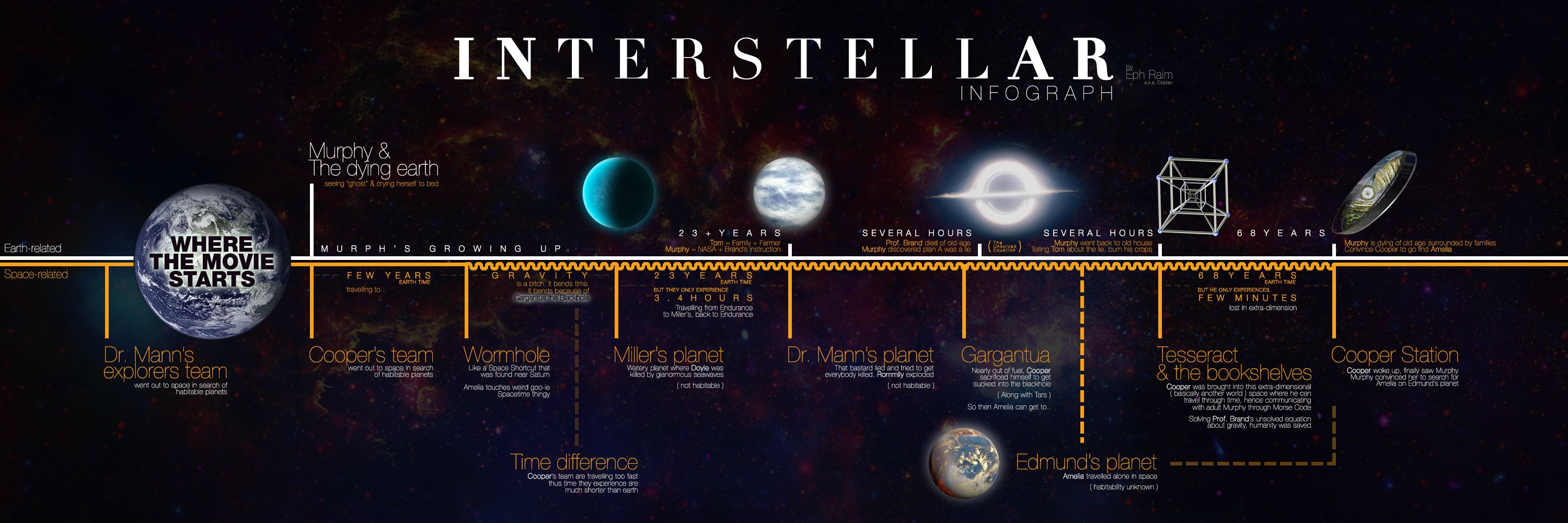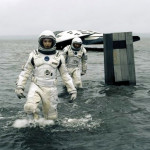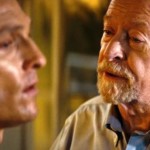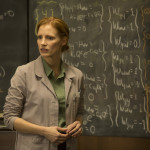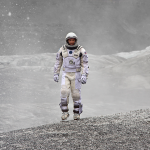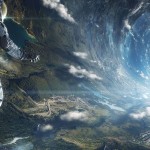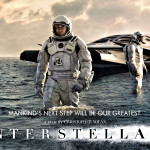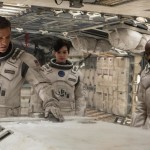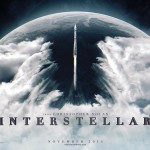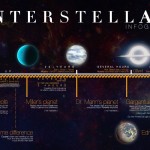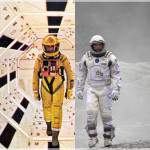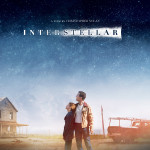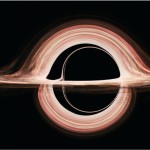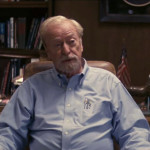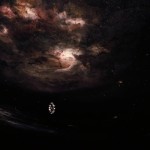Scifi is enjoying a fresh lease of life these past two years! Forgive me if I don’t list all the recent pretenders, but you’ll find plenty of them here and here. A subset of these demand interstellar travel and human beings in space, of which I’ve now seen Gravity and Interstellar, though not yet The Martian, still less any more Planet of the Apes.
Two of these four include roles in spacesuits for Matt Damon, who presumably liked being on a very distant planet so much he stayed there. Jessica Chastain also appears in the same two movies (Interstellar and The Martian), though her role in the first is largely earth-bound. Clearly some currency for actors to reach out into space, it would appear.
The key question is much simpler though: can the respective directors give us something new, fresh, original and/or exciting? If anyone can, you’d expect Christopher Nolan to step up to the mark. After all, he was the man behind, amongst others, Memento and Inception, two of the most innovative movies these past two decades, plus the ingenious The Prestige, among many others. Clearly a very capable performer with a history of hits behind him, and a scriptwriter for a brother (Jonathan Nolan) – Nolan is just the choice for this kind of epic, though James Cameron might have been a decent alternative.
But this genre is not without risk. Trouble is that space movies can end up travelling the same turf to diminishing returns. Remember that Ridley Scott won huge acclaim for his Alien series, even though those gradually reduced in impact? His response was a parallel prequel by the name of Prometheus, which proved decidedly less than the sum of its parts. Once you’ve created your planets and a few nasties along the way, you need a major overriding theme that sounds credible and won’t lose the audience along the way – and maybe Scott overreached himself in that respect.
But then, there are plenty of other epic space adventures on which to call, Alien among them. Greatest of them all, and certainly the one Nolan had in mind, is Stanley Kubrick‘s masterpiece 2001: A Space Odyssey. They might start from different places, but in space there are many parallels, including adventures inside the space-time continuum, of which more later.
Typical of Nolan, and indeed of Kubrick, Interstellar is certainly big in scale, grand in concept, and, at 169 minutes, long on the screen. Like several of its predecessors it is complex too, sometime ponderous and visually stunning. Seeing it on the small screen on DVD probably loses some of the effect I gained with Gravity, but there is sufficient evidence of spectacular effects to warrant further viewing. I’ve suggested before that emphasis on CGI effects detracts from intelligent scripting and character development, though you would be churlish to deny Nolan’s ambition.
The cast is interesting, to say the least, led by Matthew McConaughey, far more a Texan cowboy than a spaceman. McConaughey plays Joe “Coop” Cooper a former pilot who has taken up farming at a time when a crop blight and dust storms threaten the earth. Aided by his daughter Murphy “Murph” Cooper and strangely prophetic gravitational forces, he is led to a secret NASA facility run by a Dr Brand (aka John), who looks remarkably like Michael Caine, and his daughter Dr Brand (aka Amelia), who does a splendid Anne Hathaway impression.
He is persuaded to lead a space mission through a wormhole near Saturn to look for the crew who went in search of planets for the occupants of earth to inhabit, even though the chances of a return seem slim, and more particularly since this requires them to skirt the edge of a fictional black hole called Gargantua, where one hour lasts 7 earth years; understandably, Murph is a bit miffed about this. Meanwhile, Dr Brand is working on “Plan A”, a theory to harness gravity for propulsion, which would allow humanity to leave Earth, but has as his “Plan B” 5,000 frozen embryos on the spaceship. Whether he is telling the truth, the whole truth and nothing but the truth I leave to your imagination.
With me so far? That’s cool! Thereafter, most of the plot twists concern human treachery of one kind or another, which did not specifically need to be in space. The only real difference is that the characters are light years apart and can only communicate in delayed video messages that glow green like a very old fashioned mainframe terminal.
However, there is ample opportunity for the visual design crew to have a field day, and the location team too. One planet is covered in water but threatens to engulf the crew in a vast tidal wave that puts our tsunamis to shame; another (“Mann’s planet” after the Matt Damon character they find there) looks remarkably like the giant Icelandic glacier, which is hardly a surprise given that it was filmed in Iceland on the giant glacier, except this planet has an atmosphere laden with pure ammonia.
Thereafter it all starts getting complicated, with a bunch of science and pseudo-science, Ms Hathaway being fired alone in the direction of an earth like planet and Mr McConaughey straight down the black hole and into a strange 5th dimension in which some of the many loose ends are tied but others left dangling… but just enough of a happy ending to please the money men. The fact that the ending requires a substantial role reversal between Coop and Murph was predictable, but that does not give away anything substantial.
Stop me if this starts to sound familiar, by the way. Odd happenings on a distant planet, peculiar 5th dimensions that play havoc with your sense of reality, not one (HAL) but two renegade computers (TARRS and CASE in this case – the former having remarkable powers of movement), strange time shifts – the most significant difference between 2001 and Interstellar is the artificial happy ending tacked on, one reason perhaps why Kubrick did not win plaudits from studios or audiences disliking ambiguity and wanting to go home with smiles on their faces.
This is not simply Nolan’s nods to a glittering predecessor but almost a reworking of many of the themes found in 2001, with a healthy dose of motifs taken along the way from other scifi movies. Not just scifi either: one scene reminded me strongly of a very similar scene in Polanski‘s spooky psychological thriller, The Tenant. Hardly a unique situation – Tarantino made an entire career of it, and like Quentin, Nolan has put his own unique stamp on one, if not several genres.
Don’t get me wrong – in many ways Interstellar is very spectacular and beautifully crafted, if barely coherent at times; its cast manage to overcome the welter of special effects to make their own mark. But….. 2001 was so definitive that Nolan cannot come off best in any comparison, and is in the final analysis a rehash. Nice try!

